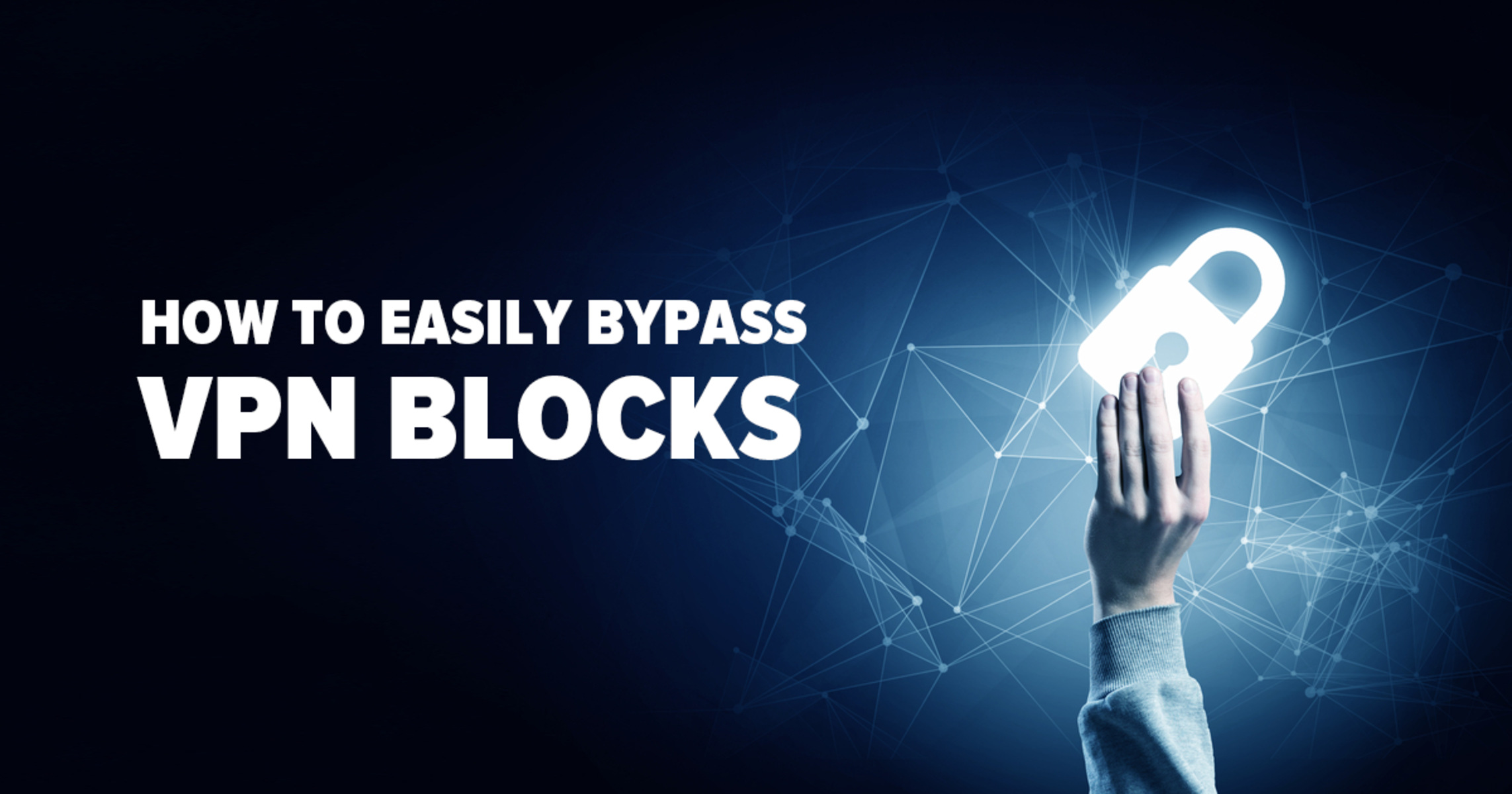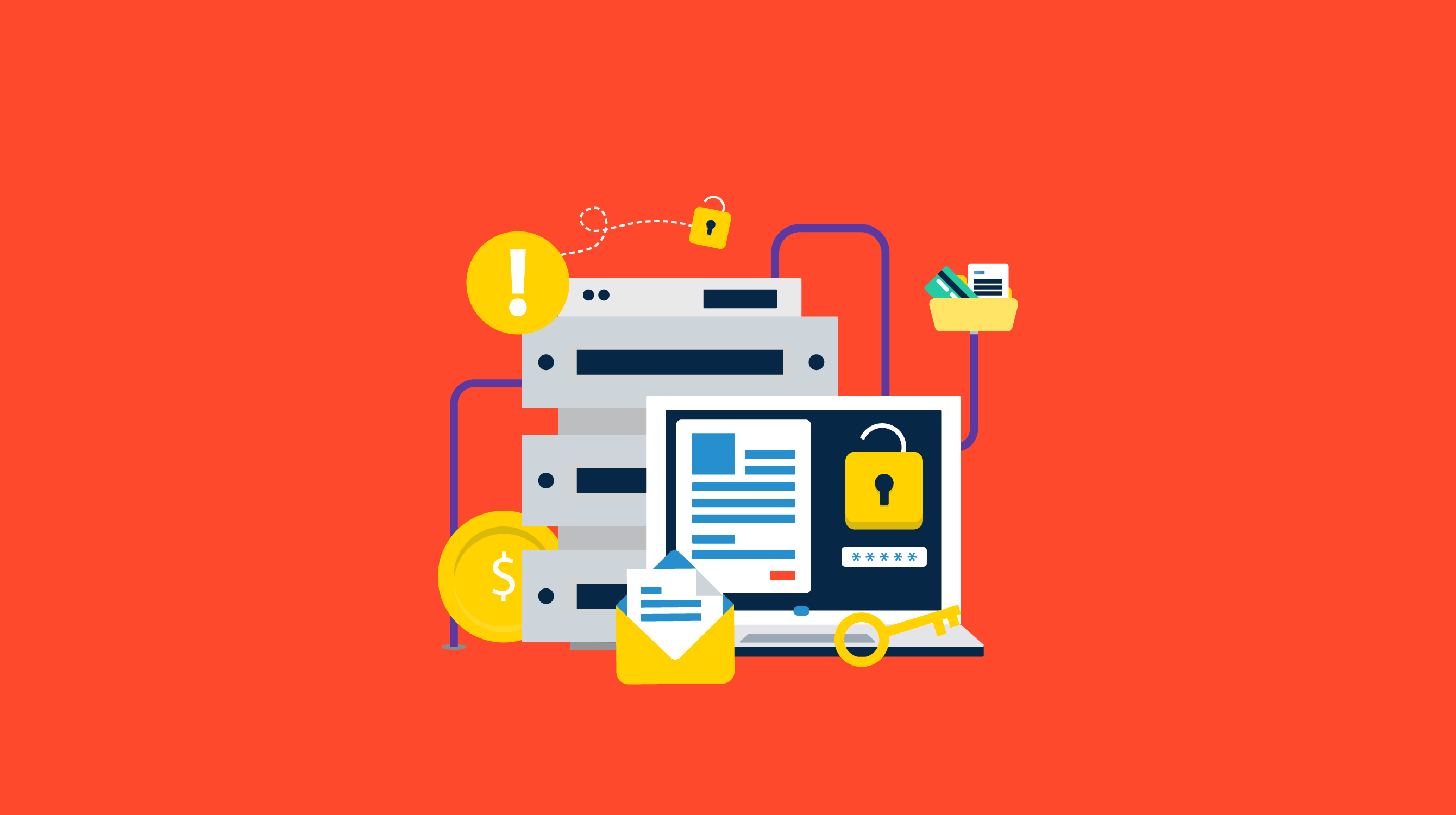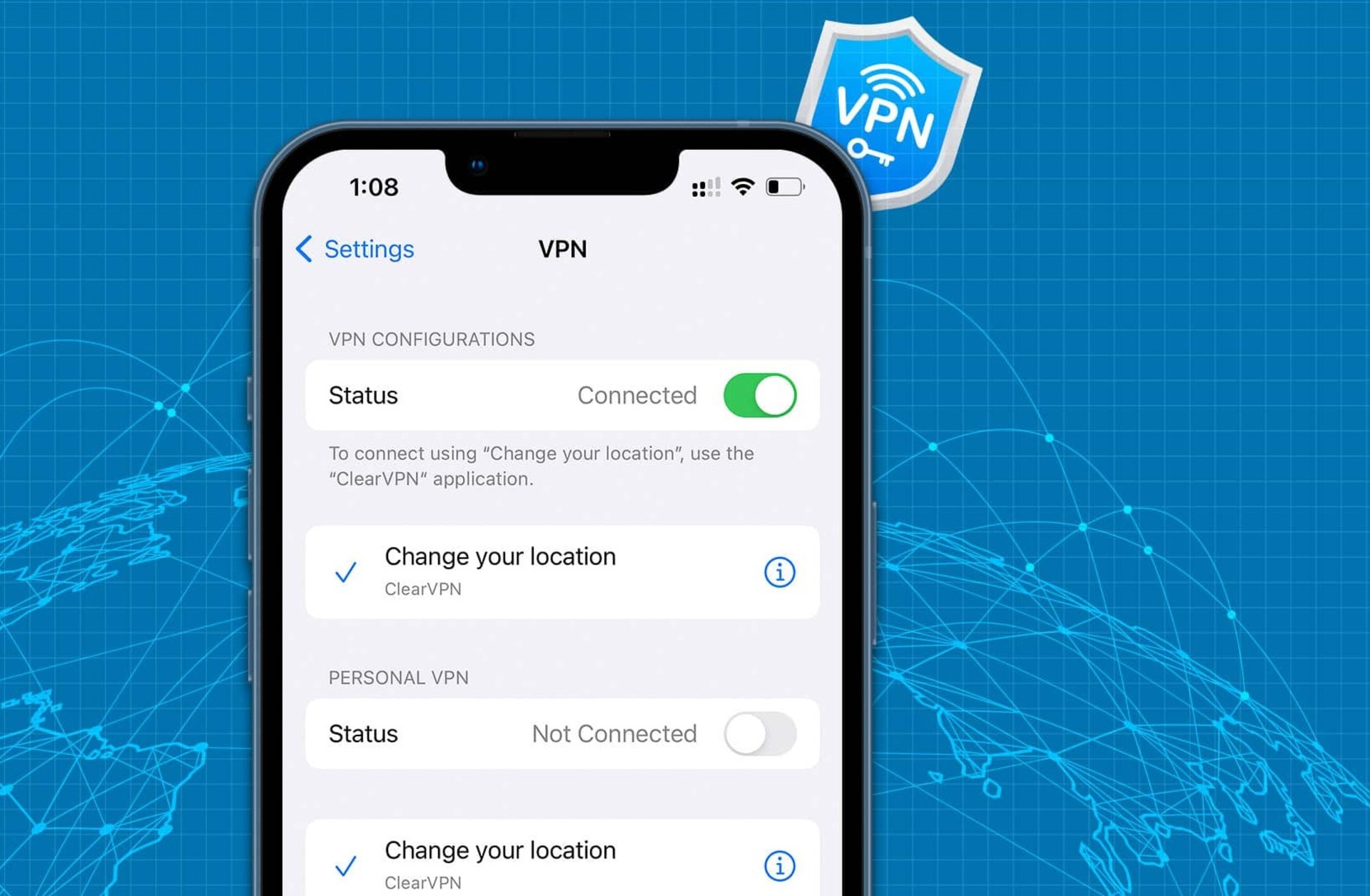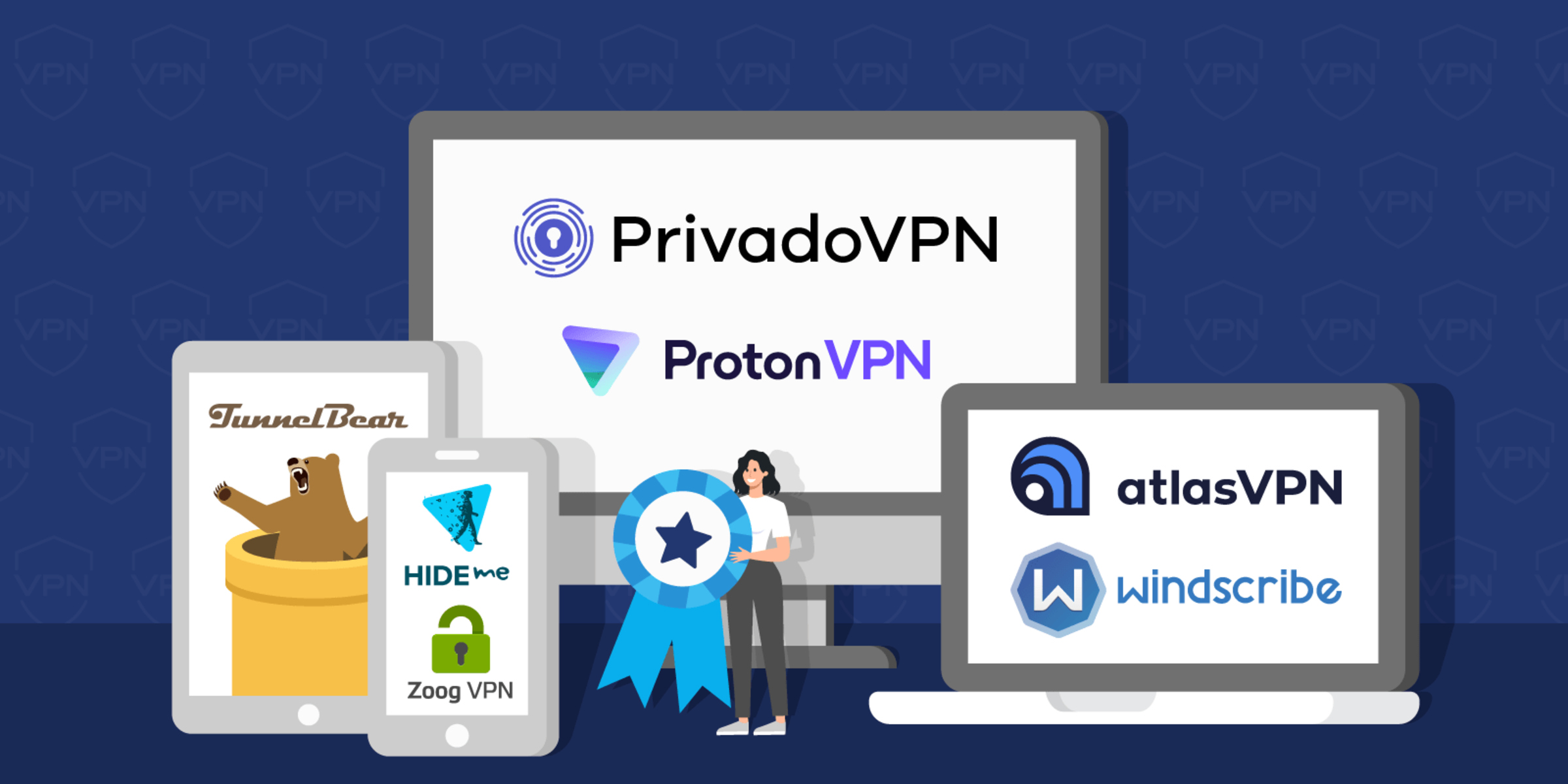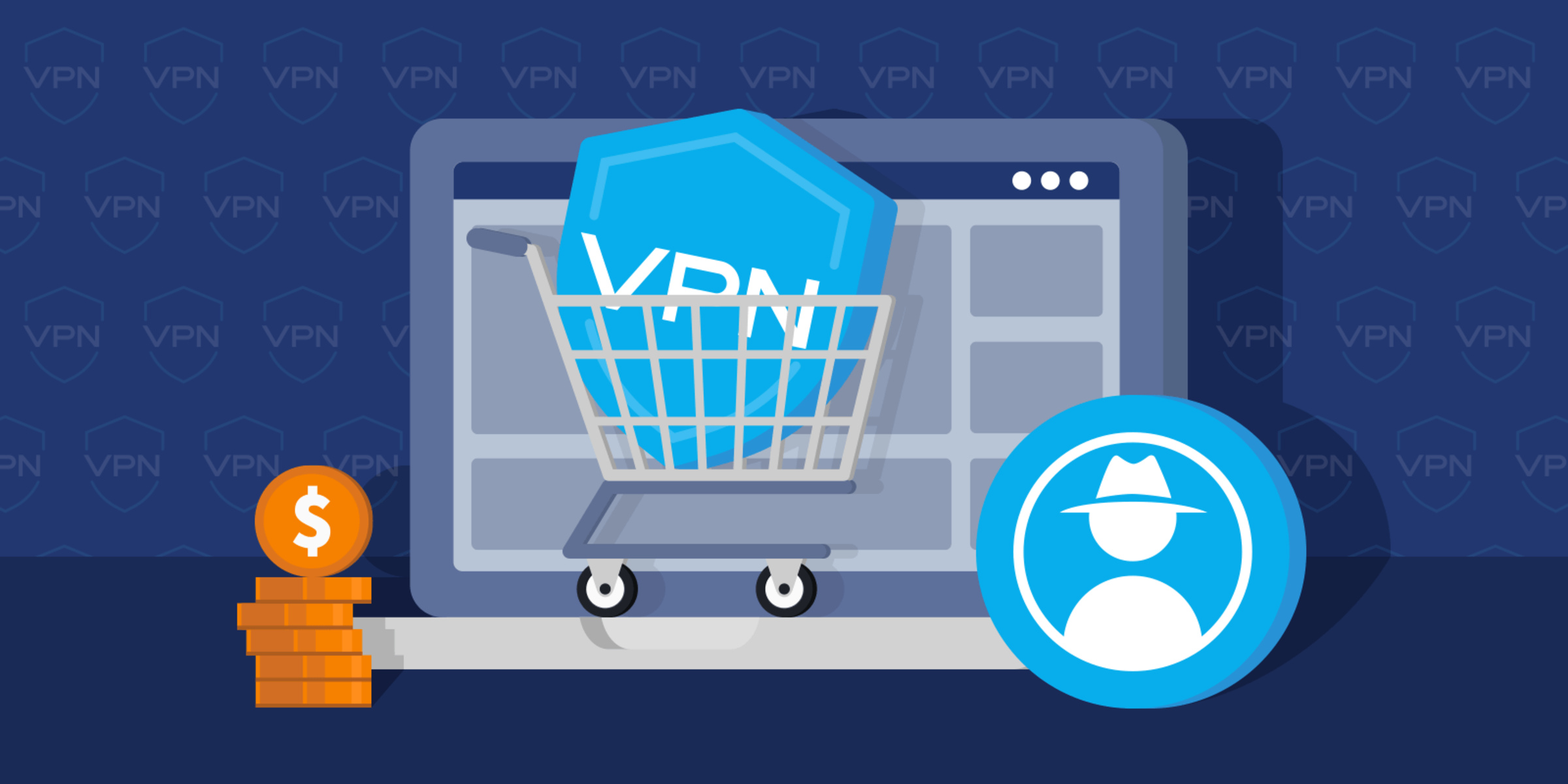Introduction
Welcome to the world of VPNs, where a simple software can unlock a whole new realm of possibilities for your online experience. VPN, short for Virtual Private Network, is a technology that allows you to create a secure and encrypted connection to another network over the internet. It acts as a tunnel that shields your online activities from prying eyes and provides you with numerous benefits and advantages.
With the increasing prevalence of cybercrimes, data breaches, surveillance, and censorship, utilizing a VPN has become essential for anyone who values their online privacy and security. By connecting to a VPN server, your internet traffic gets encrypted, making it nearly impossible for anyone to intercept or decipher your data.
But aside from the security aspect, VPNs offer a plethora of other advantages that can truly enhance your online experience. In this article, we’ll explore the various uses and benefits of VPNs, so you can fully understand why they have become an integral part of so many people’s digital lives.
Whether you’re a business professional, a traveller, a streaming enthusiast, or simply someone who wants to safeguard their personal information, a VPN has something to offer for everyone. So, let’s dive into the world of VPNs and discover the incredible things you can do with this technology.
Secure Your Online Connection
In today’s digital landscape, online security is a top concern for individuals and businesses alike. With cybercriminals becoming more sophisticated and persistent, it’s crucial to take proactive measures to protect your sensitive information and maintain your privacy.
One of the primary benefits of using a VPN is the ability to secure your online connection. When you connect to a VPN server, all of your internet traffic is encrypted, making it virtually impossible for anyone to intercept or access your data. This is especially important when using public Wi-Fi networks, which are notorious for their lack of security.
Public Wi-Fi networks, such as those found in coffee shops, airports, or hotels, are often vulnerable to hackers who can easily intercept your internet traffic and steal your personal information. However, by using a VPN, you can create a secure and private connection that shields your data from prying eyes.
Furthermore, a VPN protects you from various online threats, including malware, phishing attacks, and identity theft. By encrypting your internet traffic, a VPN prevents cybercriminals from monitoring your online activities and stealing your sensitive information, such as passwords, credit card details, or personal documents.
Moreover, a VPN can go a long way in preventing your Internet Service Provider (ISP) from tracking and logging your online activities. ISPs often collect data on their users’ browsing habits and sell it to advertisers or third parties. However, with a VPN, your online activities are hidden, preserving your privacy and preventing your ISP from monitoring and tracking your every move.
Overall, using a VPN is crucial for ensuring the security of your online connection. Whether you’re browsing the web, accessing your online banking, or sending sensitive documents, a VPN offers a layer of protection that is essential in today’s digital age.
Access Geo-Restricted Content
Have you ever come across a message that says, “This content is not available in your country”? Geo-restrictions are limitations imposed by content providers based on the geographical location of the user. These restrictions can be frustrating, especially when you want to access your favorite TV shows, movies, or online content while traveling or living abroad.
This is where a VPN comes in handy. When you connect to a VPN server located in a different country, you can bypass these geo-restrictions and access content that would otherwise be unavailable to you. By encrypting your internet traffic and routing it through a server in a different country, you can appear as if you are browsing the internet from that specific location.
For example, if you’re in the United States and want to access a streaming service that is only available in the United Kingdom, you can connect to a UK-based VPN server. This will assign you a UK IP address, tricking the streaming service into thinking that you are accessing it from within the UK. As a result, you can enjoy all the content that is available to users in the UK.
Not only does a VPN allow you to access geo-restricted streaming services, but it also lets you unblock websites and bypass censorship imposed by governments or organizations. In regions where certain websites or social media platforms are blocked, a VPN can provide you with the freedom to browse the internet without any restrictions.
Additionally, a VPN can be valuable for travelers who want to access online banking, email accounts, or other services that might be restricted to specific countries while abroad. By connecting to a server in your home country, you can maintain access to these services as if you were still there.
Overall, a VPN opens up a world of content that was previously inaccessible due to geo-restrictions. Whether you want to watch international TV shows, access blocked websites, or simply enjoy your favorite content while abroad, a VPN is the key to unlocking a truly global internet experience.
Bypass Censorship
In some regions around the world, internet censorship is a harsh reality. Governments or institutions often impose restrictions on what content can be accessed and shared online. This can range from blocking certain websites or social media platforms to monitoring and censoring online communication.
A VPN can serve as a powerful tool to bypass censorship and enjoy unrestricted internet access. By connecting to a VPN server located outside of the censored region, you can effectively circumvent these restrictions and regain your freedom to browse the internet without limitations.
When you connect to a VPN, your internet traffic is encrypted, making it challenging for authorities to detect and restrict your online activities. This means that even if you’re in a country with strict internet censorship, a VPN can provide you with a safe and private way to access blocked websites, social media platforms, news sources, and other online content.
Moreover, a VPN allows you to communicate freely and securely, even in countries with heavy surveillance. By encrypting your online communication, a VPN prevents government agencies or hackers from intercepting and monitoring your conversations or accessing your private data.
Journalists, activists, and individuals living in oppressive regimes often rely on VPNs to protect their online privacy and evade censorship. It allows them to securely access and share information, collaborate with peers, and advocate for their cause without fear of repercussion.
By using a VPN to bypass censorship, you not only reclaim your online freedom but also support the principles of free speech, open access to information, and a free and open internet for all.
Protect Your Personal Data
In the age of digital technology, personal data has become one of the most valuable assets. From financial information to social media profiles, our personal data is constantly being collected and processed. This makes it crucial to safeguard our sensitive information from falling into the wrong hands.
A VPN provides a layer of protection by encrypting your internet traffic and securing your personal data. When you connect to a VPN, all of your online activities are channeled through an encrypted tunnel, making it nearly impossible for hackers or malicious individuals to intercept or access your data.
This is especially important when using public Wi-Fi networks, which are notorious for their lack of security. Whether you’re accessing your online banking, making purchases, or logging into your social media accounts, using a VPN ensures that your personal data remains secure and confidential.
Furthermore, a VPN can protect your online privacy by anonymizing your online activities. By hiding your IP address and routing your internet traffic through a VPN server, you prevent websites, advertisers, and other online entities from tracking and profiling your online behavior.
Many companies and online platforms collect data on their users to create targeted advertisements or sell to third parties. However, with a VPN, your online activities remain anonymous, giving you greater control over your personal information and protecting your privacy.
Additionally, a VPN can provide an extra layer of security when accessing sensitive information or conducting online transactions. By using a VPN, you can ensure that your data is encrypted and transmitted securely, preventing it from being intercepted or compromised.
Overall, using a VPN is essential for protecting your personal data in today’s digital landscape. Whether you’re browsing the web, accessing online services, or communicating with others, a VPN provides you with the peace of mind that your information is kept secure and confidential.
Safely Browse Public Wi-Fi Networks
Public Wi-Fi networks are incredibly convenient, allowing us to stay connected and productive while on the go. However, these networks come with significant security risks. Cybercriminals often target public Wi-Fi networks to intercept and steal sensitive information from unsuspecting users.
Fortunately, with a VPN, you can safely browse public Wi-Fi networks and protect your data from prying eyes. When you connect to a VPN server, all of your internet traffic is encrypted, preventing anyone on the network from intercepting your data or accessing your personal information.
Whether you’re in a coffee shop, airport, hotel, or any other public space offering Wi-Fi, using a VPN ensures that your online activities remain private and secure. It creates a secure tunnel that shields your data from hackers or malicious individuals lurking on the same network.
In addition to encrypting your data, a VPN also masks your IP address. This means that even if someone manages to intercept your encrypted data, they won’t be able to trace it back to your device or location. This provides an extra layer of anonymity and security, making it nearly impossible for cybercriminals to track or target you.
Moreover, a VPN can protect you from other security vulnerabilities associated with public Wi-Fi networks. For example, a VPN can prevent “man-in-the-middle attacks” where hackers intercept the communication between your device and the network to steal sensitive information or inject malware.
By using a VPN, you can browse the internet and access your online accounts with peace of mind, knowing that your data is encrypted and secure. It adds an essential layer of protection that is particularly crucial when connecting to public Wi-Fi networks.
So, the next time you’re sipping a latte at a café or waiting for your flight at the airport, remember to activate your VPN and enjoy the convenience of public Wi-Fi without compromising your online security.
Keep Your Online Activities Private
When browsing the internet, it’s important to maintain the privacy of your online activities. However, this can be challenging in a digital landscape where data collection and surveillance have become widespread. That’s where a VPN comes in to help you keep your online activities private.
By encrypting your internet traffic and hiding your IP address, a VPN ensures that your online activities are shielded from prying eyes. Whether it’s your ISP, advertisers, or government agencies, a VPN prevents them from tracking your online behavior or monitoring your browsing habits.
A VPN acts as a barrier between your device and the websites or online services you interact with. It encrypts your data, making it unreadable to anyone who might try to intercept it. This encryption secures your online activities, such as browsing websites, sending emails, or accessing online accounts.
Moreover, a VPN masks your IP address, replacing it with the IP address of the VPN server you’re connected to. This provides an additional layer of privacy by making it harder for websites and online services to track your physical location or identify you based on your IP address.
Keeping your online activities private is not just a matter of personal preference; it’s also about preserving your freedom of expression and avoiding potential repercussions. In some countries, expressing certain opinions or accessing particular content can have severe consequences. By using a VPN, you can bypass censorship and access information without fear of being monitored or targeted.
Additionally, a VPN can prevent third-party tracking and profiling. In today’s world, online entities collect vast amounts of data to create detailed profiles of users. They use this information for targeted advertising, data mining, or even selling it to other companies. With a VPN, you can protect yourself from invasive tracking practices and maintain control over your personal information.
Overall, a VPN allows you to reclaim your privacy and keep your online activities private. It empowers you to browse the internet with confidence, knowing that your data is encrypted and your privacy is safeguarded.
Download and Torrent Anonymously
Downloading and sharing files through torrenting can be a convenient way to access a wide range of content. However, torrenting also comes with inherent risks, including privacy concerns and the potential for legal consequences. Luckily, with a VPN, you can download and torrent anonymously, minimizing these risks and ensuring your privacy.
When you connect to a VPN server before engaging in torrenting activities, your IP address is replaced with the IP address of the VPN server. This effectively masks your real identity and makes it difficult for anyone to trace the downloading or sharing activities back to you.
Furthermore, a VPN encrypts your internet traffic, preventing your Internet Service Provider (ISP) or any third parties from monitoring your torrenting activities. This means that even if your ISP tracks your internet usage, they won’t be able to see what specific files you’re downloading or sharing.
Using a VPN for torrenting also provides protection against copyright trolls and legal threats. These entities monitor torrenting activity to identify potential copyright violations and may send intimidating letters or take legal action. However, by using a VPN, your IP address is hidden, making it nearly impossible for them to identify you as the user involved in the torrenting activity.
Additionally, a VPN can help you bypass bandwidth throttling imposed by ISPs. Some ISPs intentionally slow down or restrict the speed of certain types of internet activity, including torrenting. When you use a VPN, your traffic appears as encrypted data, making it harder for ISPs to identify and throttle specific activities.
However, it’s important to note that not all VPNs allow torrenting on their servers. It’s crucial to choose a VPN provider that explicitly supports and allows P2P file sharing. Look for VPNs that have dedicated servers for torrenting and have a strong commitment to user privacy.
By downloading and torrenting anonymously through a VPN, you can enjoy a greater level of privacy, security, and peace of mind. It allows you to access a wide range of content without the fear of legal consequences or compromising your online privacy.
Maintain Online Anonymity
In an era where our online activities can be easily tracked and monitored, maintaining online anonymity has become increasingly important. Whether you’re concerned about privacy, security, or simply want to have control over your online identity, a VPN can help you maintain your anonymity and protect your digital footprint.
When you connect to a VPN, your internet traffic is routed through an encrypted tunnel, making it virtually impossible for anyone to trace your online activities back to you. The VPN masks your IP address, replacing it with the IP address of the VPN server you’re connected to. This ensures that your true identity and physical location remain hidden from prying eyes.
By maintaining online anonymity, you can protect yourself from various threats, such as targeted advertising, identity theft, and surveillance. When your IP address is hidden, it becomes much more difficult for advertisers and data brokers to track your online behavior, build profiles, and bombard you with personalized ads.
Moreover, maintaining online anonymity can be crucial for individuals who live in countries with strict censorship or surveillance policies. By using a VPN, you can bypass restrictions and access blocked websites, social media platforms, or communication channels without fear of repercussions.
Another advantage of maintaining online anonymity is that it allows you to engage in online activities without leaving a trace. Whether you’re researching sensitive topics, participating in forums, or simply browsing the web, a VPN ensures that your digital footprint remains private, giving you greater control over your online presence.
With online anonymity, you also have the freedom to express your opinions and viewpoints without fear of retaliation or judgment. It allows you to engage in open discussions, explore various perspectives, and be a part of online communities without compromising your privacy or facing potential consequences.
However, it’s important to choose a reliable VPN service that respects your privacy and does not log or track your online activities. Look for VPN providers that have a strict no-logs policy and are transparent about their data handling practices.
Maintaining online anonymity is not just about protecting yourself; it’s about reclaiming your digital autonomy and being in control of your online identity. By using a VPN, you can safeguard your privacy, secure your data, and have the freedom to explore the digital world without leaving behind a trail of personal information.
Access Foreign Streaming Services
Have you ever wanted to watch your favorite TV shows or movies that are only available on foreign streaming services? With a VPN, you can unlock a world of entertainment by accessing foreign streaming services, regardless of your geographic location.
Streaming platforms often have regional restrictions that limit their content to specific countries. However, a VPN allows you to bypass these geo-restrictions by connecting to a server located in the country where the desired streaming service is available.
By connecting to a VPN server in a different country, you can trick streaming services into thinking that you are accessing their content from within that specific region. This grants you the ability to enjoy a vast library of movies, TV shows, and other streaming content that would otherwise be unavailable to you.
For example, if you’re in the United States and want to watch a popular British TV show that is exclusively available on a UK-based streaming service, you can connect to a VPN server in the UK. This gives you access to the streaming service as if you were physically located in the UK, opening up a whole new selection of shows and movies.
Not only does this provide you with a wider range of entertainment options, but it also allows you to explore different cultures through their unique content offerings. Whether you’re interested in foreign films, international TV series, or documentaries from around the world, a VPN can grant you access to streaming services in multiple countries.
It’s important to note that some streaming services actively block VPN usage to enforce regional restrictions. However, reputable VPN providers often have advanced technology to bypass these blocks and ensure that you can access the content you desire.
Using a VPN to access foreign streaming services not only enhances your entertainment experience but also provides you with a tool to discover new content and broaden your cultural horizons. It allows you to transcend geographical boundaries and immerse yourself in a world of entertainment that knows no borders.
Unblock VoIP Services
Voice over Internet Protocol (VoIP) services, such as Skype, WhatsApp, and Google Voice, have revolutionized the way we communicate by allowing us to make voice and video calls over the internet. However, in some regions, these services may be blocked or restricted due to government regulations or limitations imposed by telecommunication providers. Thankfully, a VPN can help you unblock VoIP services and enjoy seamless communication regardless of your location.
When you connect to a VPN server, it assigns you a new IP address from the server’s location. This makes it appear as if you’re accessing the internet from that specific region, effectively bypassing regional restrictions imposed on VoIP services. You can connect to a VPN server in a country where VoIP services are not blocked, allowing you to use these services without any limitations.
By unblocking VoIP services with a VPN, you can communicate with family, friends, or colleagues around the world effortlessly. Whether you’re making voice or video calls, sending messages, or sharing files, a VPN ensures that your communication is not hindered by censorship or restrictions.
In addition to unblocking VoIP services, a VPN also enhances the security of your VoIP calls. The VPN encrypts your internet traffic, protecting your communication from being intercepted or monitored by malicious individuals or surveillance programs.
Furthermore, a VPN masks your IP address, adding an extra layer of privacy. This prevents third parties, such as telecommunication providers or government agencies, from constantly monitoring and analyzing your VoIP communication.
It’s important to choose a reliable VPN provider that offers fast and stable connections, as well as servers in locations where VoIP services are accessible. Additionally, ensure that the VPN provider does not restrict or throttle VoIP traffic, allowing for seamless and high-quality communication.
By unblocking VoIP services with a VPN, you can overcome barriers and stay connected with your loved ones, collaborate with colleagues, or conduct business internationally. It offers a convenient and secure solution for enjoying the full benefits of online communication without the hindrance of regional restrictions.
Prevent Bandwidth Throttling
Bandwidth throttling, also known as internet throttling, is the intentional slowing down or restriction of internet speed by Internet Service Providers (ISPs) during certain activities or at specific times. This practice can significantly impact your online experience, particularly when streaming videos, playing online games, or downloading large files. However, with a VPN, you can prevent bandwidth throttling and enjoy a faster and smoother internet connection.
ISPs often throttle specific types of internet traffic, such as video streaming or torrenting, to manage network congestion or control the distribution of bandwidth. This means that your internet speed may be intentionally slowed down when engaging in these activities, leading to buffering, lag, or interrupted downloads.
By using a VPN, your internet traffic is encrypted and routed through a VPN server. As a result, your ISP cannot distinguish the type of traffic or the activities you’re engaging in. This prevents your ISP from identifying and selectively throttling certain types of internet usage.
Additionally, a VPN disguises your internet traffic, making it difficult for your ISP to monitor your activities and subsequently throttle your connection. By encrypting your data and masking your IP address, a VPN provides an extra layer of privacy and prevents your ISP from tracking and analyzing your online behavior.
Moreover, connecting to a VPN server that is located in a different region or country can also help prevent bandwidth throttling. Since your traffic appears as if it’s coming from the VPN server’s location, your ISP might be less likely to throttle your connection.
It’s important to note that while using a VPN can prevent bandwidth throttling, the actual speed and performance of your internet connection depend on various factors, such as the quality of the VPN service, your internet service plan, and the distance between you and the VPN server.
When selecting a VPN provider, look for one that offers fast and stable connections, unlimited bandwidth, and a wide range of server locations. This ensures that you can enjoy a consistently smooth internet experience without the frustration of bandwidth throttling.
By preventing bandwidth throttling with a VPN, you can optimize your internet connection and enjoy faster speeds for all your online activities. Whether you’re streaming your favorite shows, gaming with friends, or downloading files, a VPN ensures that your connection remains fast and reliable.
Protect Against Hacking and Surveillance
In today’s digital age, the threat of hacking and surveillance looms large, with cybercriminals and government agencies constantly looking for ways to access our private information. Protecting yourself against hacking and surveillance is crucial, and using a VPN is an effective measure to safeguard your online activities.
When you connect to a VPN, your internet traffic is encrypted and routed through a secure tunnel. This encryption ensures that your data remains hidden from hackers and cybercriminals who may attempt to intercept and exploit your sensitive information.
A VPN also protects you from malicious entities that employ surveillance techniques to monitor your online activities. By encrypting your internet traffic, a VPN prevents surveillance organizations and other eavesdroppers from collecting data on your browsing habits, communication, or personal details.
Furthermore, a VPN shields you from potential attacks when using public Wi-Fi networks. These networks are known to be prime targets for hackers, as they can easily intercept your data and gain unauthorized access to your devices. However, by connecting to a VPN, your internet traffic is encrypted, making it virtually impossible for hackers to intercept and exploit your data.
For individuals and businesses who handle sensitive or confidential information, a VPN is an essential tool for protecting against hacking and surveillance. It creates a secure connection that keeps your data safe from prying eyes, providing an extra layer of security for your online activities.
It’s important to note that while a VPN is an effective defense against hacking and surveillance, it is not a cure-all solution. It’s essential to practice good cybersecurity habits, such as using strong and unique passwords, keeping your devices and software updated, and being cautious of phishing attempts.
When choosing a VPN provider, opt for one that has a strong reputation for security and privacy. Look for features such as strong encryption protocols, a strict no-logs policy, and advanced security features to ensure maximum protection against hacking and surveillance.
By using a VPN to protect against hacking and surveillance, you can have peace of mind knowing that your online activities and sensitive information are shielded from prying eyes. It’s an indispensable tool for safeguarding your digital privacy in a world where data breaches and surveillance are ever-present threats.
Conclusion
In conclusion, a VPN offers a wide range of benefits and functionalities that can greatly enhance your online experience. From securing your online connection to accessing geo-restricted content, bypassing censorship, and protecting your personal data, a VPN is a versatile tool with numerous applications.
By using a VPN, you can browse the internet with confidence, knowing that your data is encrypted and your online activities are shielded from prying eyes. Whether you’re using public Wi-Fi networks, accessing sensitive information, or simply browsing the web, a VPN provides an essential layer of security and privacy.
Additionally, a VPN allows you to bypass geo-restrictions and access foreign streaming services, expanding your entertainment options and enabling you to explore content from different countries. It also helps you unblock VoIP services, ensuring uninterrupted communication with friends, family, or colleagues regardless of your location.
Furthermore, a VPN helps you maintain online anonymity, preserving your digital autonomy and protecting your online identity. It prevents bandwidth throttling, ensuring a faster and smoother internet connection for all your online activities.
Last but not least, a VPN acts as a powerful defense against hacking and surveillance, safeguarding your data from cybercriminals and protecting your privacy from intrusive surveillance practices.
When choosing a VPN provider, it’s important to consider factors such as security protocols, server locations, connection speeds, and privacy policies. Look for a reputable VPN service that aligns with your needs and priorities, ensuring a reliable and trustworthy online experience.
In today’s interconnected world, where digital threats and privacy concerns are rampant, a VPN is a valuable tool for individuals and businesses alike. It empowers you to take control of your online presence, access content and services freely, and protect your sensitive information from unauthorized access.
So, embrace the power of a VPN and unlock a world of possibilities while maintaining your privacy and security in the ever-evolving digital landscape.









